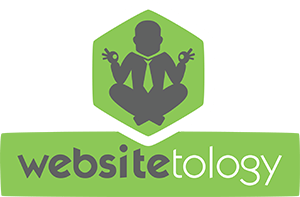WordPress as a CMS- we say yes.
Found an excellent article on WordPress as a Content Management System- and much of it agrees with what we’ve been preaching and teaching for the last couple of years. It is well worth jumping over and reading the whole thing.
The key for us is how easy it is to use WordPress- as compared to other CMS systems. The author of the following article also said the same thing:
I just know WordPress, and I know it is easy to use (as opposed to, say, Joomla) for not so familiar clients. Add a solid support for “static†content, being the WordPress Pages, and more newsy update flows controlled by the Posts, and you’ve got your needs pretty much covered for most websites online today.
If you can’t use it yourself, and keep your company on the forefront of Industry news and trends, you don’t really have a website. We also see the terrific value WordPress offers as an Search Engine Optimization tool. Use WordPress right- get to the front of Google.
Here is his very helpful checklist:
Checklist for Creating Web Sites with WordPress as the CMS
These are the things I tend to think about before choosing and designing a website where WordPress will be used as the CMS. There’s probably other things as well, things I just haven’t take into account since my clients haven’t had that kind of need yet. Feel free to add yours in the comments, sharing is caring after all.
* Is there even a need for a CMS for the client?
* Is WordPress the correct CMS? Will it fit the needs? Is the translations available for the WordPress backend good enough? How will it be upgraded?
* Will I need to extend WordPress using plugins? Are any hacks to the core necessary, because if they are, how will I make sure that these won’t break when the core is upgraded?
* What types of content will there be, and what should be deemed static (i.e. use Pages), and what is flowing updates (i.e. Posts)? How will I present this, and what is the main type of content?
* How will the permalink structure be? Should it really say “categoryâ€, why not “view†or “updates†or something else?
* Will the menu be static (i.e. coded into the theme) or controlled by WordPress (i.e. listing using WordPress tags for Pages and categories)? How could this go wrong in the future?
* What hierarchy will the Pages have? This is important for the URL, since it should be coherent with the menu hierarchy after all.
* How will I present sub-pages (i.e. Pages having a mother Page)? Should there be any at all?
* Do I need Page templates for various sections? How will these work with sub-pages?
* What categories will I use? Should the client be allowed to create new categories?
* How will I present Posts content?
* Do I need category templates for the various categories?
Things To Consider When Using WordPress as a CMS | Devlounge
Although he asks for comments on this post- they don’t seem to have them- but I would add that the issue of using Categories and Tags are still a little fuzzy for most people.
Think of Categories as the table of contents of a book and tags as the index- and you are track to better understanding how they should work. All of his points really don’t apply to people using off the shelf themes- which are the jack of all trades solutions for the most part. To really optimize WordPress as a Content Management System, you are really talking about custom theme development.
We’ve just completed an implementation of WordPress as a CMS on www.girlfriendology.com, head over and take a look.

